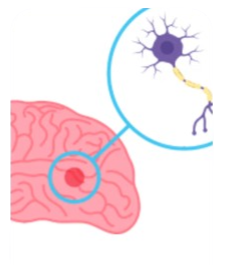

Homeopathy for Multiple Sclerosis
Abstract
Multiple Sclerosis (MS) is a chronic autoimmune disorder in which the immune system attacks the myelin sheath of the central nervous system, leading to impaired nerve conduction and progressive neurological dysfunction. Conventional medicine primarily manages MS with immunosuppressants, corticosteroids, and disease-modifying therapies (DMTs) to slow progression and reduce relapses, but these approaches do not address the deeper constitutional or psychosomatic dimensions of the disease. Homeopathy, rooted in individualized prescriptions and holistic philosophy, provides a complementary and supportive path by improving vitality, reducing relapse frequency, and enhancing overall quality of life. Integrating insights from German New Medicine (GNM) conflict theory adds further depth by exploring unresolved psycho-biological conflicts, such as motor conflicts or “movement obstruction shocks,” which may underlie disease manifestation. This paper examines Multiple Sclerosis through a homeopathic lens, including clinical understanding, case-taking methodology, relevant rubrics, materia medica indications, and the GNM interpretation that connects the condition to mind-body dynamics.
Introduction
Multiple Sclerosis (MS) is one of the most common autoimmune disorders of the central nervous system.
It predominantly affects young adults, with onset typically between 20–40 years, and shows a female predominance (female:male ratio approx. 3:1).
Pathogenesis: autoreactive T-cells target the myelin sheath, leading to demyelination, axonal damage, and impaired nerve conduction.
Outcome: progressive neurological dysfunction, with symptoms ranging from visual disturbances, numbness, and muscle weakness to severe motor disability, cognitive decline, and fatigue.
General Symptoms
Fatigue and reduced stamina
Numbness or tingling in limbs
Muscle weakness or spasticity
Difficulty with coordination and balance
Blurred or double vision
Slurred speech
Tremors
Cognitive difficulties (memory, concentration)
Bladder and bowel disturbances
Heat sensitivity (worsening of symptoms in hot conditions)
Neuro-Psychological Symptoms
Depression, mood swings
Cognitive impairment (forgetfulness, poor concentration, brain fog)
Anxiety, irritability, emotional lability
Slowed information processing
Other Systemic Symptoms
Bladder dysfunction (urgency, incontinence, retention)
Bowel disturbances (constipation, urgency)
Sexual dysfunction (reduced libido, erectile dysfunction in men, vaginal dryness in women)
Fatigue out of proportion to activity
Mind Rubrics Relevant to Multiple Sclerosis
Anxiety about health and future
Fear of losing control (especially of body/movement)
Fear of disability or paralysis
Grief, ailments from (long-lasting emotional trauma)
Irritability from trifles
Restlessness, internal yet physically weak
Memory weakness, forgets what he has just done or intended to do
Confusion, difficulty in concentration
Aversion to company yet fear of being alone
Despair of recovery
Depression alternating with excitability
Helplessness, loss of willpower
Emotional lability (laughing and crying easily)
Multiple Sclerosis Conflicts Relate To:
Motor conflict: “I cannot move” or “I am forced to stay still” (loss of freedom, mobility conflict).
Separation conflict: Feeling cut off from loved ones, team, or one’s own body.
Self-devaluation conflict: “I am not capable enough,” especially linked to movement, strength, or performance.
Territorial fear/conflict: Inability to defend one’s space or position.
Patients often experience:
Long-standing fear of losing independence due to weakness or paralysis.
Pressure to keep moving/performing despite physical or emotional exhaustion.
Trauma of feeling “trapped” or “confined” in relationships, jobs, or life situations.
Deep insecurity about future health and ability to function.
When unresolved, these conflicts affect the brain and spinal cord,
leading to demyelination and chronic autoimmune activity in Multiple Sclerosis.
Physical Examination
Visual disturbances (optic neuritis, nystagmus)
Motor weakness or spasticity (especially in lower limbs)
Tremors, ataxia, poor coordination
Sensory deficits (numbness, tingling, loss of vibration sense)
Hyperreflexia, Babinski sign positive
Gait abnormalities (spastic gait, imbalance)
